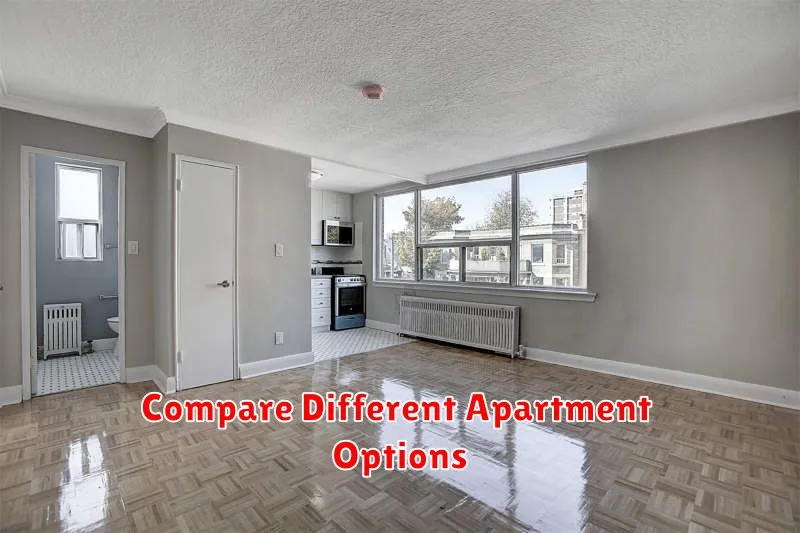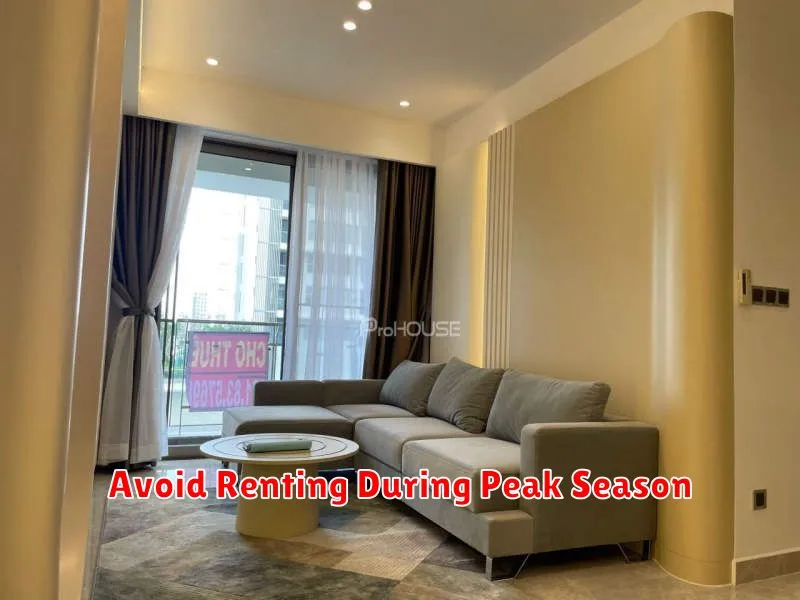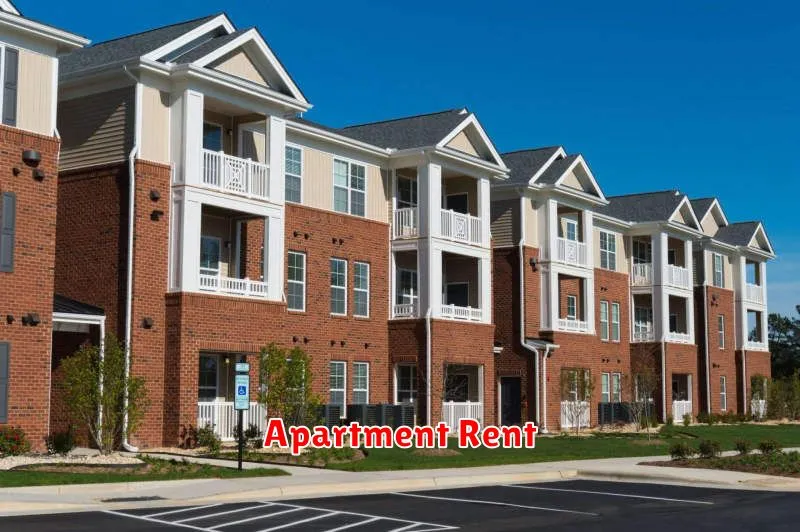Are you looking for a new apartment but dreading the high cost of rent? Finding affordable housing in today’s market can be a challenge, but it doesn’t have to be. Overpaying for rent can be a big drain on your budget, but there are steps you can take to make sure you’re getting the best deal possible. This article will provide you with actionable tips on how to avoid overpaying for an apartment and find a place that fits your budget. From understanding market rates to negotiating rent, we’ll cover everything you need to know to get the best value for your money. Let’s get started!
Research the Market Value of Similar Apartments

Before you even start looking at apartments, it’s essential to understand the market value of similar apartments in your desired area. This will give you a benchmark to compare against and help you avoid overpaying. There are several online resources that can help you with this research:
- Real estate websites: Websites like Zillow, Trulia, and Redfin allow you to search for apartments based on your criteria and see the average price per square foot, recent sales, and current listings in your area.
- Apartment listing websites: Websites like Apartments.com, Rent.com, and RentPath provide comprehensive listings and allow you to filter based on your desired features and price range.
- Local real estate agents: A local real estate agent can provide insights into the current market conditions and offer valuable information on comparable apartments in your area.
By researching the market value, you’ll be able to determine if the asking price for an apartment is fair or if it’s inflated. This information will give you leverage during negotiations and help you avoid paying more than you should.
Negotiate Rent with Your Landlord
Negotiating your rent with your landlord can be a great way to save money on your apartment. While it may seem daunting, it’s a common practice and often worth the effort. Here are some tips to help you negotiate effectively:
Do your research: Before you approach your landlord, know the market value for similar apartments in your area. Websites like Zillow, Trulia, and Apartments.com can be helpful resources. You can also check with local real estate agents to get a better sense of average rental rates. This information will give you a strong bargaining position.
Be prepared to compromise: Negotiating rent is a give-and-take process. Be prepared to offer something in return for a lower rent. This could be a longer lease term, a larger security deposit, or even agreeing to handle some minor maintenance tasks.
Be polite and respectful: It’s important to maintain a professional and courteous demeanor throughout the negotiation process. Avoid being aggressive or confrontational. Remember, your goal is to build a positive relationship with your landlord.
Be realistic and fair: While it’s okay to aim for a lower rent, be realistic about what you can expect. Don’t expect your landlord to drastically reduce your rent without any concessions from your end. Aim for a fair and mutually beneficial agreement.
Put it in writing: Once you reach an agreement, make sure to get it in writing. This could be a formal lease amendment or a simple letter outlining the new terms. Having a written agreement ensures that both parties are aware of and agree to the new rental rate.
Consider Location and Amenities
When looking for an apartment, it’s easy to get caught up in the excitement of finding a place you love. But before you sign on the dotted line, take a step back and consider the location and amenities. These factors can significantly impact your overall cost of living and your enjoyment of the apartment.
Location is key. Consider your commute to work or school, access to public transportation, proximity to grocery stores, restaurants, and other amenities. A convenient location can save you time and money in the long run. If you’re willing to sacrifice a slightly longer commute or fewer amenities, you may be able to find a more affordable apartment in a less desirable neighborhood.
Amenities can also add to your monthly expenses. While it’s nice to have access to a gym, pool, or laundry facility, these features can also come with a hefty price tag. Evaluate the amenities that are truly important to you and decide if you’re willing to pay extra for them.
By carefully considering location and amenities, you can avoid overpaying for an apartment. This will allow you to stretch your budget further and live comfortably in a place you love.
Look for Move-in Specials and Discounts
Apartment hunting can be a stressful and expensive process. To avoid overpaying, you should try to take advantage of all available discounts and specials. Many landlords offer move-in specials to attract tenants and make their property more appealing. These specials can take many forms, such as discounted rent, waived application fees, or free amenities.
It’s a good idea to ask your potential landlord about any current move-in specials or discounts. You can also find this information online by checking the apartment complex’s website or social media pages. You should also be aware of seasonal discounts. Many apartment complexes offer discounted rent during the off-season, typically during the fall and winter months.
Be sure to ask for everything in writing. Get a clear understanding of the terms and conditions of any move-in special or discount. For example, make sure you know how long the discount will last and if there are any restrictions on eligibility. If you are looking to save money on your next apartment, be sure to ask about all available move-in specials and discounts. You may be surprised at what you can find!
Be Flexible with Your Move-in Date
One of the best ways to avoid overpaying for an apartment is to be flexible with your move-in date. Landlords often offer incentives to tenants who are willing to move in on a shorter notice. This could include rent discounts, free months of rent, or even waiving application fees.
For example, if a landlord has an apartment that needs to be filled quickly, they may be willing to offer a significant discount to someone who can move in within a week or two. If you’re flexible with your move-in date, you can use this to your advantage and potentially save a lot of money on your rent.
Of course, you don’t want to sacrifice your own needs for a discount. But if you’re willing to be a little flexible, it can definitely pay off.
Compare Different Apartment Options

Before you start looking at apartments, it’s important to know what you’re looking for. Consider your budget, desired location, and the amenities you need. Once you have a good idea of what you want, start comparing different apartment options. This could involve researching online listings, attending open houses, or contacting real estate agents. Don’t be afraid to ask questions about the apartment and the surrounding neighborhood. The more information you gather, the better equipped you will be to make an informed decision.
Once you’ve identified a few apartments that fit your needs, it’s time to start comparing prices. Don’t just focus on the advertised rent. Consider all the additional costs, such as utilities, parking, and pet fees. You should also be aware of any move-in or move-out fees. By carefully comparing all the costs associated with each apartment, you can identify the best value for your money.
Finally, don’t be afraid to negotiate. If you’re confident in your research and you’ve found an apartment that fits your needs, you may be able to negotiate a lower rent or better terms. This can save you a significant amount of money over the long term.
Understand Lease Terms and Fees
Before you sign a lease, carefully review the terms and fees to ensure you understand what you’re agreeing to. This can help you avoid surprises and potential overpayments. Some important factors to consider include:
- Lease Duration: Understand the length of the lease agreement and the consequences of breaking it.
- Rent: Ensure you understand the rent amount, payment due date, and any penalties for late payment.
- Security Deposit: Determine the amount of the security deposit, how it will be used, and how it will be returned to you at the end of your lease.
- Utilities: Clarify which utilities are included in the rent and which you are responsible for paying separately.
- Pet Fees: If you have pets, understand any pet fees, restrictions, or deposits required.
- Parking Fees: If parking is not included in the rent, determine the cost and availability of parking spaces.
- Late Fees: Know any late fees that may apply for rent or other payments.
- Other Fees: Be aware of any other fees, such as application fees, administrative fees, or move-in/move-out fees.
By thoroughly reviewing these terms and fees, you can gain a better understanding of the true cost of renting an apartment and make informed decisions to avoid overpaying.
Factor in Additional Costs
The advertised rent might be the starting point, but it’s rarely the final cost. You need to factor in additional expenses that can significantly inflate your budget. Here’s a list of common costs you should consider:
- Security Deposit: Many landlords require a security deposit, typically equal to one or two months’ rent. This is refundable (minus any deductions for damages) when you move out.
- Pet Deposit and Monthly Pet Rent: If you have pets, expect extra fees. This can include a non-refundable pet deposit and an added monthly pet rent.
- Utilities: Unless your rent covers utilities, budget for electricity, gas, water, sewage, trash, and internet.
- Parking: If you need off-street parking, factor in the cost of a parking space, garage, or permit.
- Application and Credit Check Fees: Many landlords charge fees for running a credit check and processing your application.
- Moving Costs: Don’t forget the cost of movers, packing supplies, or renting a truck.
- Furniture: If you need to furnish your apartment, factor in the expense.
By considering these additional expenses, you can create a realistic budget and avoid surprises when moving into your new apartment.
Avoid Renting During Peak Season

The rental market is cyclical, with prices typically peaking during certain times of the year. Peak season for rentals usually occurs during the spring and summer months, when demand is high due to school graduations, new job starts, and favorable weather for moving. If you can avoid renting during these peak months, you’ll have a better chance of finding a good deal.
During peak season, landlords are more likely to charge higher rent prices, and there is more competition for available units. It’s also more difficult to negotiate with landlords, as they have a lot of other potential renters to choose from.
Instead of renting during peak season, consider moving during the off-season, typically during the fall or winter. Demand is usually lower during these times, giving you more leverage to negotiate a lower rent price. You may also have a better selection of apartments to choose from, as landlords are more motivated to fill vacant units.
Consider a Roommate
Sharing an apartment with a roommate can significantly reduce your housing costs. You can split the rent, utilities, and other expenses, making it more affordable to live in a desirable area or in a larger, more comfortable apartment. Finding the right roommate is crucial, so be sure to choose someone you trust and whose lifestyle is compatible with yours. Be clear about expectations regarding shared spaces, cleaning responsibilities, and noise levels. A roommate agreement can help prevent misunderstandings and ensure a smooth living experience.

